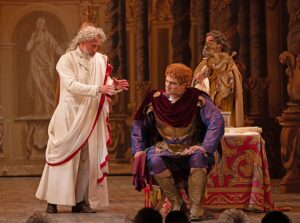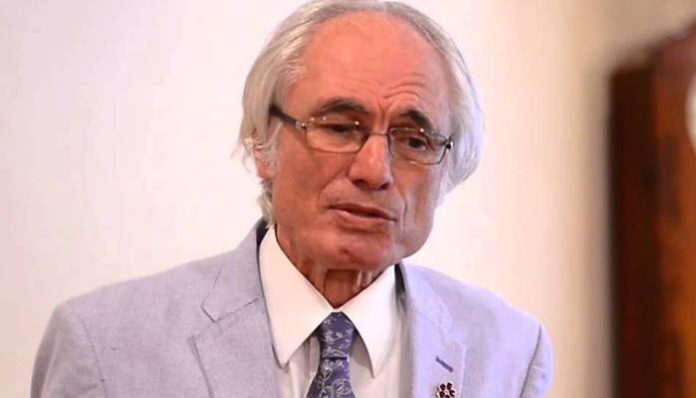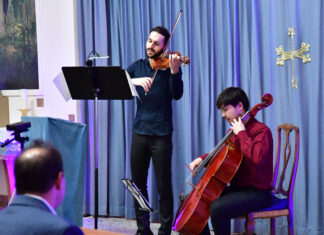By Nestor Castiglione
LOS ANGELES — Since at least the death of Stravinsky, the composer has become an anonymous figure in the West, whether through willful academic seclusion on their part, or neglect by lazy happenstance on the part of listeners. Few people today outside the ever narrowing factions of classical music lovers would probably recognize a John Adams or Philip Glass walking down their street. Quite a number would probably be surprised to learn that the profession of “classical composer” is still alive, even sought after by some.
In some corners of the world, however, the role of composer still carries a powerful aura for people.
As violinist Movses Pogossian mentioned in his prefatory remarks to UCLA’s tribute to the composer last Wednesday, the 80-year-old Tigran Mansurian enjoys the status of celebrity in his native Armenia, with passersby regularly seeking autographs and selfies from him. His reputation there was built upon his neo-Romantic film scores, which seem to stand at a remove from the concert works that have carried his name abroad. Or do they? Something of the sensuality, the earthy directness of those soundtracks can be heard distantly echoing in the masterpieces of his maturity.
Within the same composer there thrives the Armenian, the Russian, and the European cosmopolitan, fusing those three into a single inimitable voice which remains one of the most compelling of our age.
His String Quintet, which was performed in the US for the first time on Wednesday night, took scattered shards evoking Armenian folk musics, and reassembled them in startling ways that were more IRCAM than Ijevan.








